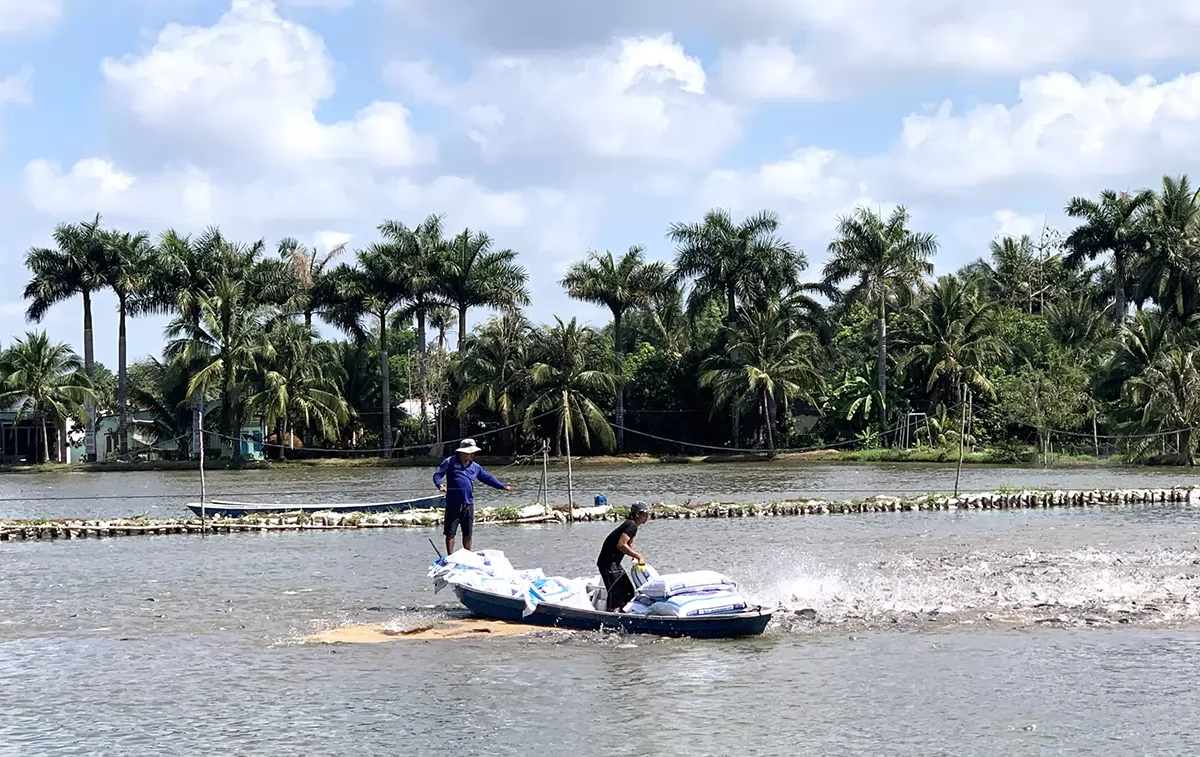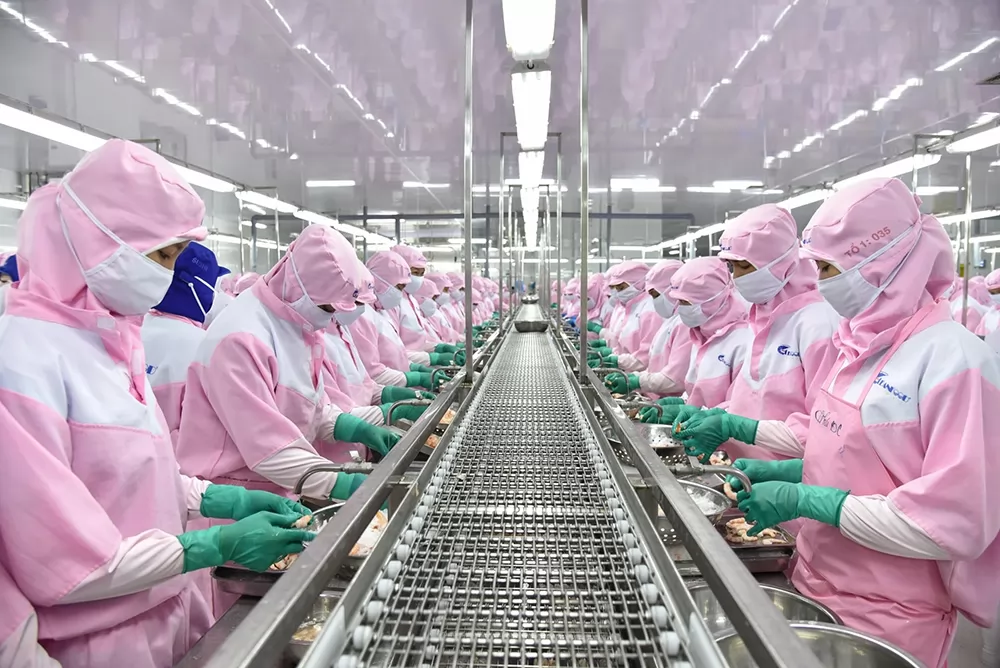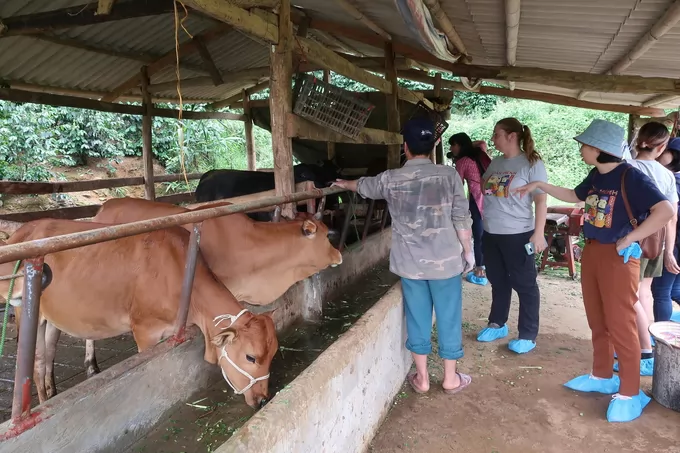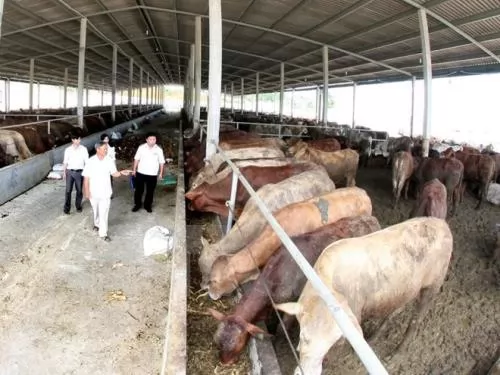Mekong Delta: Pangasius exports manage to overcome the bend

(VAN) The pangasius export market is suffering a fall to a low point. Pangasius farmers reduce stocking when they are balancing supply and demand, aiming to regulate production to overcome the crisis cycle.
In the Mekong Delta, by the end of May 2023, many pangasius farming areas had reduced the seed stocking rate. After the first few months of the year and several fluctuations, the price of commercial pangasius could not maintain a level of over VND 30,000 /kg. Although this price level is considered profitable, it is only enough to encourage the farmers to maintain the fish in the pond and be able to cope with the cost of seeds and the increasing price of aquaculture feeds.
However, currently, factories only procure pangasius at a price of VND 27,000 /kg. At this price level, good fish farmers also suffer a loss of VND 1,000–2,000 /kg. According to Mr. Phuong, a persistent fish farmer for many years in Tan Loc Island, Thot Not district, Can Tho city, in the past two months, some skilled pangasius farmers along the Hau River have gradually rested. Someone has temporarily stopped using the pond and returned the number of rented ponds.
The pangasius industry is facing the reality that although professional fish farmers are qualified, granted farming area codes, and transferred farming techniques that meet export standards, they still face disadvantages. Especially when the input costs increase and the quality of fish seeds is not good enough, causing a high increase in loss rate and thereby putting pressure on the cost of fish farming. Finally, the pangasius farmers can only expect the export market to move positively.

Processing pangasius for export in the Mekong Delta. Photo: Huu Duc-BD.
Looking back at the achievements in 2022, the pangasius production chain has impressive growth in all three aspects: farming area, output, and export value. Total export turnover reached USD$ 2.4 billion, surpassing the 2018 peak of USD$ 2.26 billion. However, after a year of big success, through the first three months of 2023, pangasius exports reached USD$ 422 million, down more than 35% compared to the same period in 2022.
In terms of reasons for that decrease, according to the Vietnam Association of Seafood Exporters and Producers (VASEP), due to the global food inflation situation, the inventory of retailers is still high. Since then, the demand and import prices in some major markets have reduced, leading to a decrease in export sales of pangasius in the first quarter of 2023 compared to the same period last year.
Besides, according to the judgment of the owner of a pangasius processing and export enterprise in Tra Noc Industrial Park, Can Tho city, the quality of Vietnamese pangasius products is good and competitive, so they are accepted by many markets around the world. However, in the context of the world economic recession at the beginning of the year, some major import markets, such as China, the US, and the EU, suffered a decline, leading to an impact on pangasius exports in the Mekong Delta.
To be more specific, the EU and US markets have not recovered. The pangasius fillet export market to China accounts for about 40%, but the import market in this country sometimes fluctuates suddenly with changes in consumption demand. Previously, the Chinese market consumed pangasius butterflies with a small size of 500–600 grams/fish, and in the summer, the provinces of Shanxi and Chengdu like to consume pangasius used to cook hot pot. But in the past two years, the Chinese market has no longer bought small-size pangasius and usually increases imports of pangasius in the last months of the year.
Mr. Phuong and many other people who are good at raising pangasius in the Mekong Delta have experienced many ups and downs and accepted troubles when engaging in the product chain with strong market sensitivity. However, Mr. Phuong is still finding a way to overcome the troubles. While the market is bleak and fish farmers are temporarily inactive in the low-point period, he opened a local processing factory to process fresh food to make OCOP products offered at fairs and in big cities in the country.
Meanwhile, pangasius exporters predict that the economic crisis cycle will pass. While waiting for the market to recover, it is necessary to have solutions for enduring, regulating production, extending the season, and reducing fish stocking. Especially recently, the bank's reduction in interest rates has created changes and removed the lack of capital for businesses to maintain production, welcoming opportunities in the last two quarters of the year.
Author: Huu Duc
Translated by Huyen Vu Thu
Maybe you are interested

Seafood exports: The challenge of sustaining growth after hitting the $11 billion mark
The record export value of $11 billion in 2025 has given a strong boost to the seafood industry. In 2026, the challenge is to maintain growth momentum amid mounting market barriers and intense competition.

SAPLING initiative strengthens biosecure livestock farming techniques in Son La
Up to 90% of farmers participating in the project in Mai Son and Phu Yen districts now have a better understanding of animal diseases and are aware of the importance of vaccinating their livestock.

Cow breeding yields high income for farmers in Tiền Giang
Viet Nam News / HCM CITY — Farmers who breed oxen and raise cows in the Cửu Long (Mekong) Delta province of Tiền Giang have greatly improved their income.





